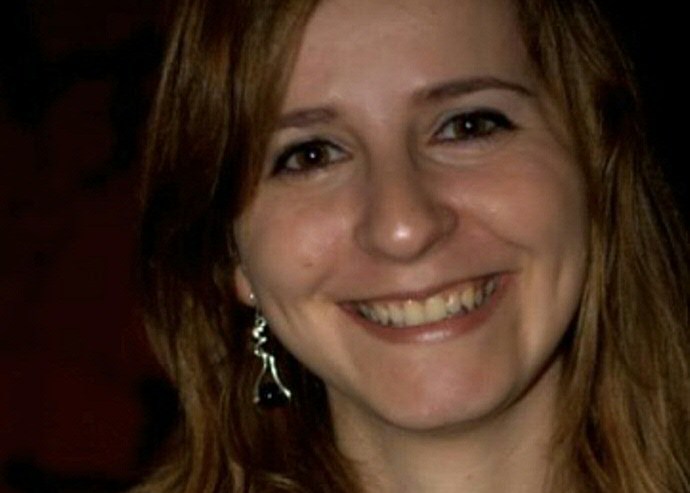Beeldherkenning helpt politie bij opsporen kinderporno

Industrieel ingenieur Laura Fernández Robles heeft een softwarematige oplossing ontwikkeld voor drie verschillende toepassingen van beeldherkenning. Een daarvan is een programma om digitaal objecten te identificeren op foto’s met kinderporno. De Spaanse politie heeft deze methode inmiddels in gebruik. Fernández Robles ontwikkelde ook software om varkenssperma te classificeren en slijtage aan freeskoppen te monitoren. Ze promoveert 5 februari 2016 op haar onderzoek aan de Rijksuniversiteit Groningen.
Het is een enorme uitdaging voor de politie om een verband te vinden tussen vele duizenden foto’s van misbruikte kinderen. Het zou daarom nuttig zijn wanneer agenten over techniek beschikken om - op basis van voorwerpen op de foto als speelgoed of meubels - te bepalen welke afbeeldingen uit één bron komen.
Speelgoed
‘Er bestond nog geen geautomatiseerd systeem om de kinderpornobeelden te analyseren,’ zegt onderzoekster Laura Fernández Robles. In een gezamenlijk promotietraject aan de universiteit van León (Spanje) en de Rijksuniversiteit Groningen heeft zij hiervoor een programma gebouwd dat inmiddels door de Spaanse politie wordt gebruikt.
Gedeeltelijke overeenkomst
De software die zij ontwikkelde haalt kenmerken van objecten uit de beelden en slaat de beschrijvingen op in een database. ‘Het idee is dat agenten een object in een afbeelding selecteren en dat het systeem vervolgens op zoek gaat naar vergelijkbare objecten in de database.’ De software die Fernández Robles hiervoor gebruikte, kan ook een gedeeltelijke overeenkomst herkennen. Het werkt zelfs als maar een klein deel van het object zichtbaar is. ‘Bovendien herkent het objecten ook wanneer ze vanuit verschillende hoeken zijn gefotografeerd,’ vertelt zij.
Spaanse politie
Een bijzondere uitdaging was het grote aantal foto’s dat de politie moet onderzoeken. Om de vergelijking sneller te maken moeten al deze foto’s eerst worden geanalyseerd door de software, waarna de beschrijvingen in een database komen. ‘De Spaanse politie is momenteel bezig om beelden in het systeem in te voeren,’ vertelt Fernández Robles. ‘Zij zijn tevreden met de eerste resultaten en zullen in de nabije toekomst het systeem op grotere schaal gaan gebruiken.’
Lerend systeem
Het onderzoek naar kinderporno was onderdeel van een Europees onderzoeksprogramma, ASASEC, dat wordt gecoördineerd door het Spaanse instituut voor cybersecurity INCIBE. In haar proefschrift beschrijft Fernández Robles nog twee projecten met industriële partners. Het eerste is de ontwikkeling van een geautomatiseerd systeem om varkenssperma te classificeren. Het tweede was gericht op de inspectie van slijtage van freesmessen. ‘Anders dan bij het werk voor de politie ging het hier om bekende vormen, dus bouwde ik een lerend systeem.’
Kleur
Fernández Robles gebruikte verschillende technieken en filters om objecten te beschrijven. ‘Een van de dingen die ik heb gedaan is kleurinformatie toevoegen aan het COSFIRE-filter.’ Een deel van dit werk is gedaan bij de Groningse onderzoeksgroep Intelligente Systemen, die onder leiding staat van haar promotor Nicolai Petkov. Een ander deel vond plaats in Spanje. Het onderzoek werd gefinancierd door de universiteit van León, de Junta de Castilla y León, de Spaanse overheid en de Europese Unie.
Varkenssperma
Varkensfokkers gebruiken inmiddels haar software om te controleren of varkenssperma er gezond uit ziet. ‘Het is nu een geautomatiseerd systeem dat op de markt is gebracht door het bedrijf Microptic SL. Eerder moest de kwaliteit van het sperma worden bepaald door visuele inspectie van spermacellen met behulp van een dure fluorescentiemicroscoop.’
Freesmessen
Het systeem dat de messen op freeskoppen controleert op breuken werkt inmiddels prima onder laboratoriumomstandigheden, maar moet nog worden getest in een echte fabriek. Fernández Robles zal haar onderzoek voortzetten aan de universiteit van León: ‘Als ingenieur houd ik ervan om aan echte toepassingen te werken.’
Noot voor de redactie
- Laura Fernández Robles promoveert vrijdag 5 februari 2016 aan de Rijskuniversiteit Groningen op haar proefschrift Object recognition techniques in real applications. Haar promotor in Groningen is prof.dr. Nicolai Petkov.
Meer nieuws
-
17 februari 2026
De lange zoektocht naar nieuwe fysica
-
10 februari 2026
Waarom slechts een klein aantal planeten geschikt is voor leven
